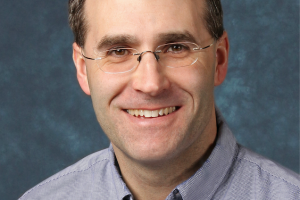“Now all has been heard; here is the conclusion of the matter: Fear God and keep his commandments, for this is the duty of every human being.” (Ecclesiastes 12:13)
Many of the headlines and pundits over the past 20-30 years state the same mantra, that “this country has lost its moral compass”, or that we don’t seem to know what is right or wrong anymore. Said a different way, in 2020 in America what is the “common good”?
Some sociologists, educators, and business executives agree that most younger people (Millennials as well as Gen Z’s) simply have not learned enough and often do not know right vs. wrong. They don’t know what is appropriate.
People cannot know what they have never properly learned. It is not the fault of young adults or teens of today, but rather the error and omission of their parents, teachers, school boards, and political leaders.
How do teenagers learn right from wrong and how to make the best decisions for their lives? One way would of course be their parents. Unfortunately, many, many parents are making a myriad of bad life decisions and perhaps they themselves are not the best role models and/or the most involved parents.
The second way Americans over the past 200 years would grow up and learn proper life lessons and goals would be from their pastor and church body. There are a few issues with this. For one, many churches have shifted and become more a mirror of current society than a religious group standing up for core longstanding beliefs. But even for the churches and denominations which are actively preaching the truth, overall church attendance in the U.S. has been diminishing fairly rapidly over the past 50 years. Thus, teens not in church will not learn anything that the church or pastor is trying to teach.
This leaves the schools. Public middle and high schools are very often not preparing their students well for college, the military, or any trade or career. Teenagers are graduating high school in some districts with substandard knowledge, study habits, and work ethic. Also, many public schools are more interested in social engineering than teaching the three R’s.
What if all schools (even public schools) required that all high school students—unless their parents specifically opted OUT of it—read one or two of the Bible’s “wisdom books”? I am thinking primarily of Proverbs and Ecclesiastes here. But one could also add the Book of Sirach and the Book of Wisdom, which were part of the Greek Septuagint.
Assuming most atheists and Muslims, Buddhists, and other non-Christians opt out of it, this country would still have the majority of its teens learning how to live, what is important, and how to discern and make good choices. This is desperately needed.
The wisest man in history, King Solomon, wrote both Proverbs and Ecclesiastes. Both are excellent for instruction of teens and young people. Proverbs gives repeated practical examples, including the critical topics of laziness, choosing proper friends, anger, romantic relationships, fiscal responsibility, and understanding. Might our young people (and plenty of old people) benefit from a study of this book?
A great bookend to Proverbs is Solomon’s book of Ecclesiastes. Along with being very wise, Solomon was also extremely wealthy, and he lived a life seeking pleasure. Eventually he had an enormous harem; his lustful pursuits were certainly against God’s wishes. He certainly lived the “wine, women, and song” mantra.
That is what makes Ecclesiastes a great read.
Today, many Americans are only out to seek personal and fleeting pleasure—at any cost. That is their main goal in life; many believe that will bring about happiness and personal meaning. This book is about Solomon explaining that he has done everything, tried everything, and longed for happiness in all the wrong places. In the end, he realizes that the only thing that can bring true meaning and happiness and contentment is to follow the Commandments and to live for the Lord. Nothing else will work.
Of course this hypothetical new educational mandate is probably a pipe-dream, but maybe it would be considered in some districts or states, or at least in religious or other private/ charter schools. This country needs a strong and precise change in direction before it is too late. Do we even know right from wrong ourselves to attempt to make an important right decision?
———————
Ken Lambert has been heavily involved in construction, sales, real estate, and as an advocate for mental health for more than 25 years. He holds a U.S. Patent for a type of loan software program, and is an established writer, consultant and speaker in several fields. He has written for both secular and religious publishers, including a book he co-wrote entitled Top Ten Most Influential Christians since the Apostles.



You must be logged in to post a comment.